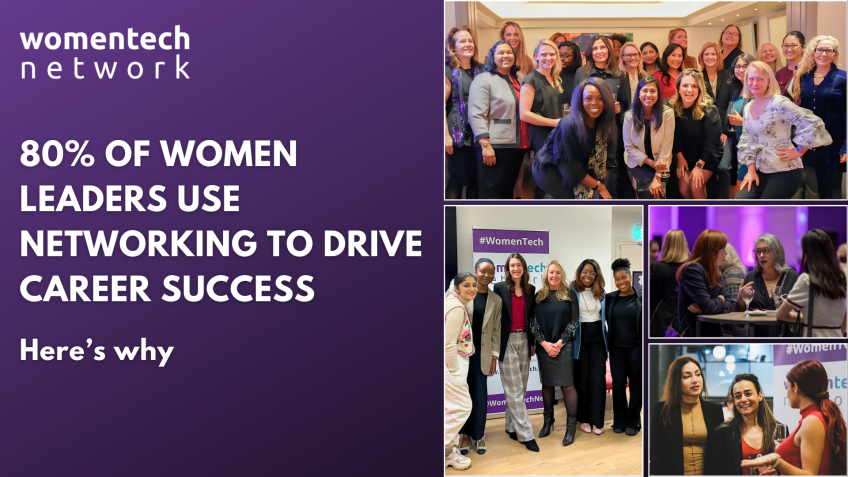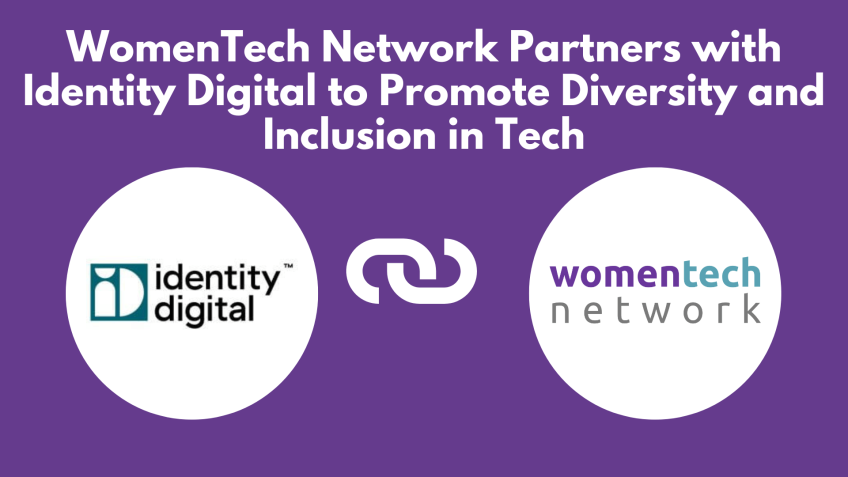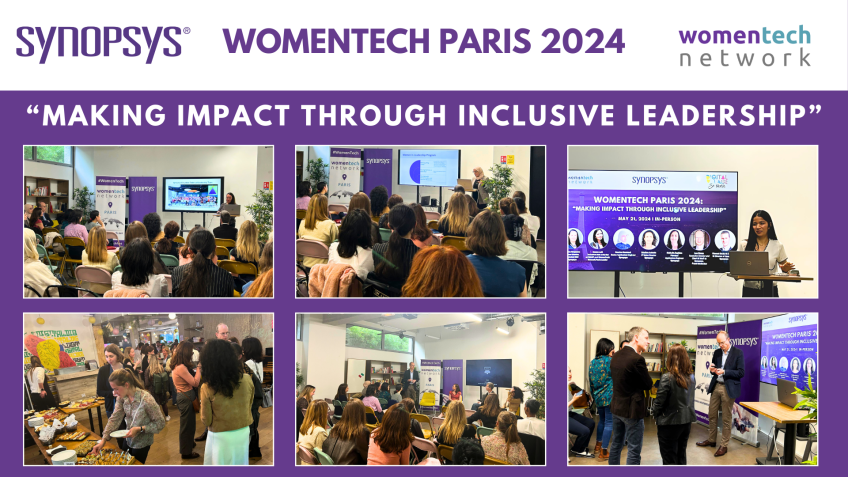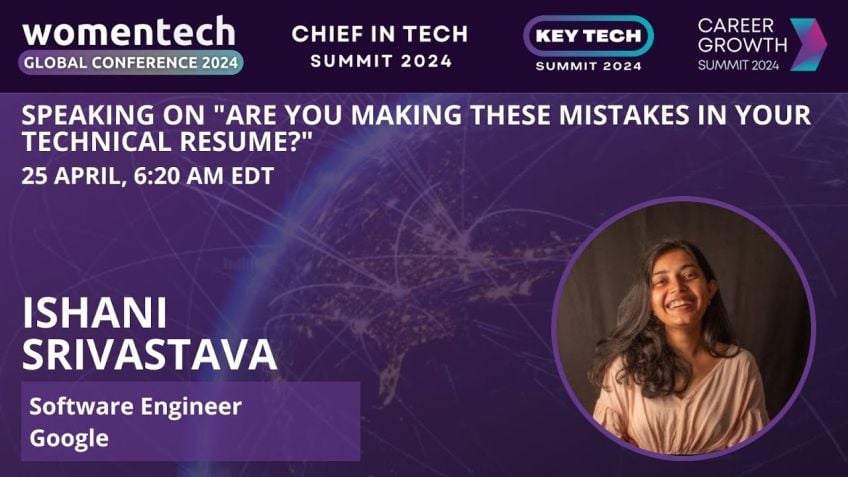Angela Westbrock
Amplifying Your Impact: The Power of Locking Arms Rather Than Simply Leaning In
Every modern wave moving for gender equality has had inspiring leaders at its helm. Some of the most profound impact-makers in today's conversation about female empowerment, however, are those multiplying that impact not just by leaning in but by locking arms. One such example is Angie West Brock, Vice President of Operations at Lyft, who shares her powerful insights on stepping up to uplift not just ourselves but other women in the workplace too.
Bringing Authenticity and Diversity into Recruiting Practices for Tech
Much like other sectors, the tech industry faces a continuous challenge in employing diverse individuals, especially women, into leadership roles. As an influential figure, Angie urges the need to consider culture add rather than culture fit while hiring. We must ensure our job descriptions invite diversity instead of encouraging the self-exclusion of diverse candidates. Locking arms in this context means using our influence to make sure the system changes systematically and inclusively.
Tackling Unequal Pay and Advancement Opportunities
Despite years of strides towards equality, pay, and advancement of women, persistent gaps remain an issue. Angie encourages women to not only demand for fair compensation and opportunities, but also advocates for systemic shifts that can bring about sustainable change. She shares her own negotiation experience and emphasises the importance of paying fairly, equitably, and advocating for others to ensure they receive what they truly deserve.
Fostering Retention through a Culture of Inclusivity and Respect
Inclusiveness, ensuring employees' voices are heard, their ideas genuinely considered, and their styles respected, is key for retaining diverse talent. We must encourage the contributions of every team member, shut down disrespectful behaviours, and assert the significance of every voice. Encouraging allies to do the same can truly foster a culture of respect and inclusivity.
Nurturing Advancement by Adopting Sponsorship
Progress in gender equality requires us to not just hire and retain women, but also to push them towards higher positions. Shifting from mentorship to sponsorship, advocating for others' advancement is pivotal in this regard.
Call to Action
As women, it's not enough to just advocate for our own advancement, but we need to make a dedicated effort to bring other women along with us. Above all, Angie's sentiment of
bringing other women along with you captures the essence of her subsistence on not only "leaning in" but "locking arms". She advocates for making a
commitment to dedicate ourselves to initiate one or two changes that benefit other women in our workforce. Let us extend our hands, create an unshakeable chain of empowerment, and pave the way for a more equal future.
Inspiring Change in the Workplace
As leaders and aspiring leaders, we need to recognise that our experiences have the power to create perspective shifts that can impact not only our own journey but also inspire change at a broader level in the workplace.
Angie's insights strike at the heart of the issue, inspiring us to take actions that will bring about not just progress, but parody, for women in leadership roles.
It's time we move beyond just leaning in towards locking arms as we strive to amplify our impact in the workplace. Lock arms, step up, and carry other women along with us.
Let's turn the tide together and move from progress to parity.
Video Transcription
So coming up next, we have Angela or Angie West Brock. Um Angie is an innovative and analytical operations executive whose career has centered on scaling teams on culture and business operations hi there to support massive growth. So Angie currently serves as Lyft as Lyft.So lifts quick word there. Uh Vice President of operations, overseeing more than 600 team members in cities across the US and Canada, that's enough. I think Angie. So in February of this year of 2020 Angie was also appointed to the additional role of head of Lyft's COVID-19 response task force. So that was they were tasked to manage workflows and decision making processes all related to the pandemic. So for both the corporation and its rider and driver community and Angela, she is here today with us to share some of her amazing expertise. So Angela, we've got you already on stage here. Your presentation is called amplifying your impact. Don't just lean in lock arms and you have no SLS either today. So it's very easy. I will send it over to
you. Great. Thank you so much and I, I do have a little bit of an echo to hear that. I think we're ok. Now, it sounds good. Yeah. Ok, great. So, um first that talk from Monica resonated with me so much. So I just want to also say thank you to her. Um Literally every word that she said was um something that, that resonated deeply with me. So thank you for your discussion on authenticity and the importance of building relationships. Um So as, as Margo just said, my name is Angie Westrock. And um I just to give you a little bit about my background outside of Lyft, I've been in the workforce for about 20 years in male dominated industries. So after earning my chemical engineering degree, I spent about 15 years in various leadership roles and Anheuser Busch and Sarah Lee, uh Fresh Bakeries. And then in 2015, I made the leap into tech, um started up the West Coast operations for Hello fresh. And then I had the opportunity to be coo at habit, the world's first personalized Nutrition company, which was amazing. And then I came to Lyft about two years ago. So I wanted to take this time today to really reflect on our progress, but then also recognize that progress is not parody. Um You know, we've had IND programs in existence before we even call them IND.
I remember the first STEM program that I was placed into to promote females in math and science was in elementary school. So we're talking like 30 years, well, more than 30 years ago now. Um uh and, and yet here we are, and since the late seventies, women have been graduating at the same rate or higher than men. Here we are in 2020 only 38 of the Fortune 500 company CEO S are female. So we, we all know we have a lot more work to do to break through to these senior leadership positions. And what we've been doing is giving us progress but it's not getting us there. So today, I want to talk about um how I'm thinking about it and how we can amplify our impact by not just leaning in but also locking arms. And so when I think about the diversity challenges that we face specifically in tech, there are four areas that I think we should focus on first and the employee life cycle that can drive most change. So these four areas are recruiting, comp, retention and development and then advancement.
So first, let's talk about recruiting practices. The tech industry in particular is known for its bias to action. So we move fast and we jump to execution mode. This can lead to rushing to fill positions from our network or, or like promoting somebody quickly without posting and considering other talent and then failing to implement processes that are designed to combat unconscious bias. Our default can be to hire the same profile and the name of culture fit too many times when a position opens up, we imagine we need someone just like another superstar or maybe just like ourselves in that role in order to get results. But at Lyft, what we talk about is hiring for culture a not culture fit. Uh And this, this really means a lot to me, it's, it's about looking across your teams and determining what experience background or point of view are you missing and what do you need to add? And then how do you go and intentionally fill positions in order to, to bridge that gap.
So another issue with recruitment is that roles within tech companies just traditionally have had very exclusive criteria that says that talent must have explicit tech experience working at like a preferred tech company. We like to use words like top tier business school preferred.
But if you want diversity, you have to allow for diversity and experience it like long overly detailed job descriptions often end up limiting diverse candidates and those candidates are the ones that have a higher tendency to self select out. And this can happen with hiring panels too.
So if your panels have a lack of diversity, this can be an early signal to candidates that they won't be accepted. When I think about a lot of the conversations that I have with my friends and people that I mentor. There's always this acknowledgment that when um women in particular look at the job requirements for a specific job or for promotion, we often tell ourselves that we have to hit 10 out of 10 every single one of those requirements before we're ready for the job. And meanwhile, many men will take a look and hit like three out of 10 and they're like, I got this, you know, and, and congratulations to the people that are like that. But the reality is when we actually develop these kind of very explicit and overly detailed job descriptions, you're losing candidates out before they even apply and to the, to the panel. Um example, I experienced this myself with Lyft and this was probably one of the first times that that really happened to me where I understood what it felt like. And it, and it made me so much more sensitive to this in the future. And that's that when I was interviewing, I took a look at the panel that I was interviewing with that lift. And the first thing I noticed is that it was an incredibly diverse panel, which was awesome, but then it started getting a little intimidating.
I started clicking on everybody's background. And what I noticed is that each and every single one of them had an Ivy League Masters and had done and most had done up top consulting firms. And when I took a look at that, I just immediately started worrying about my background, which was just vastly different than anyone on that panel. And I started doubting whether it was like really being seriously considered. And I almost canceled. And so here I am a very confident, experienced leader and I almost opted out. So thankfully, I didn't. And from that personal experience, I realized to feel self conscious about our differences and how powerful those feelings can be. So when I think about this problem around recruiting practices and processes and making sure that we have inclusive and intentional hiring practices, When I think about how to solve that, when we're leaning in, we stand our ground, we refuse to opt out, we find the courage and apply for those jobs anyway, we demand that promotion because we know that's what a man would do.
And by the way, we should keep doing all of those things. So, so keep doing that to really go after the root cause of this problem, we need to lock arms, use our influence and our companies to make sure this system is changed. Look at job descriptions, create diverse hiring panel panels, speak up for unconscious bias. When you see it and hire for culture, let's remove these barriers so that women and diverse candidates don't have obstacles to overcome just to get in the door. So if I move on to the next topic, which I think we all love, which is pay and comp here we are in 2020 women still aren't being paid equal to men. And this is probably the number one question that I get asked from women and um and friends and colleagues and, and people that I mentor, which is around how to negotiate their pay. There, there always seems to be this tension among women who like are naturally grateful for the opportunity, but also know they need to ask for more money, which by the way, like always ask for more money. So that's the, that's the side note. But um you know, I remember my, my first promotion at Sara Lee in particular, um I was up for, I was up for promotion and it was going to require me to relocate to a higher cost of living, living area.
And as I was approaching this conversation with my boss, I just was not, um I just was not comfortable with this negotiation. And so I talked to him about it and, and I, I took a different approach. I was just very authentic. I said, look, you're the one that has all the information, you know, how much I make, you know, how much the man in the job before me made, you know, how much you're willing to pay. So let's just make this very simple. And I said, I'm not gonna counter offer anything. So I want you to come to me with a proposal and I'm either gonna say yes or no to the promotion based on that um based on the op options that you get. And it was interesting because my my boss took a step back and he was like, you know, nobody's really ever done this before. And the more that he thought about it, he said, the more it put the ownership on him to make sure that he had an offer that was good enough to get me to say yes. And you know, of course, I wasn't doing that. I wasn't trying a new negotiation tactic. I was just being authentic. But what it did do is say, hey, look, you're the hiring manager and I'm putting the pressure on you to make this fair. And of course he did and I accepted the promotion.
I was, it was, I was glad to. Um and but it taught me a lot about how those negotiations work. So when I think about pay in general and I think about this moment, this negotiation moment, if I'm leaning in, I step out of my comfort zone, I ask for more money. I demand that promotion. And in a lot of ways, I think of this as like telling myself to act like a man in those situations. But when I start to lock arms, I can change what negotiation looks like. We're not buying used cars here, ok? Like we're trying to attract and retain talent. So let's change this process. And when you're the one hiring talent offer, a great offer, don't, don't like lowballing expectations for a counter offer. Um Don't try to get a deal pay, pay fairly and pay women equally. One story that comes to mind that I think is really powerful, is a very dear friend of mine was um she's very senior in her company and they were hiring for a critical role and um happened to have a, a man receiving an offer. They, they made him an offer and ultimately, he ended up not taking it.
So a few weeks later, they were um making an offer, they found another candidate and this candidate actually happened to be a woman and was even more experienced and ended up being this amazing candidate and they made an offer she accepted. My friend was ecstatic, goes to sign the paperwork on her desk and to finalize all the details and realized that the offer they made the woman candidate was $20,000 less than the offer they had made the man three weeks prior. So she takes a look at this and walks into the recruiting manager and says, like, you know, what are we doing? Why is this not the same offer that we offered the candidate a few weeks ago? And the recruiter recruiting manager said, well, this is what she asked for. We gave her what she asked for and my friend took a look at it and said, this is unacceptable. She has more experience than the person we made a previous offer to. We're gonna give her the $20,000 because she deserves it. And we are willing to pay it. And that's the end of the discussion. And I want to understand how we can make sure our processes are fixed in the future. So we don't have this misunderstanding. And my friend called me on the way home from her commute that night because she was so worked up about it.
And I just said to her, thank you like this is exactly what we need to do and this is how we step in and we advocate for other people and other women to ensure that we don't continue to perpetuate this, this issue of having unfair and unequal pay. So moving on to the third area that I wanna focus on which is retention in order to retain top talent and retain diverse talent, we must create a culture of inclusiveness and allow individuals to perform the job in the way that suits them. Focus on results. The what not the how one of my biggest points of frustration is when leaders hire diverse candidates and then expect them to conform or assimilate and behave just like everyone else. 20 years ago, when I was entering the workforce, there were still signs of women assimilating to the predominantly male roles, women in senior positions would even change their appearance, have shorter hair, um change their attire or their tone in order to fit in. And I remember once being really bold uh by wearing a, a pink golf shirt with my khakis that day. And when I was in a meeting, someone actually sarcastically asked me if it was Easter. And you know, this was an example of sort of being called out for being different. So these kind, this example is just very obvious and I use it because it's um it's like undeniable but changing physical appearance to fit in is visible.
But this happens with invisible traits too, like communication style, ideas and perspectives. I see this playing out in tech, particularly through communication style. Once again, like we move fast, we make fast decisions. We have casual work environments where we are comfortable pushing the envelope on proper etiquette.
You know, we'll interrupt, we'll curse, we'll do things and this can be an intimidating environment and prevent team members from sharing their view or speaking up. If the first team members don't feel safe to express themselves, they won't be able to make an impact and they'll eventually just leave and go somewhere where they are valued. So when I think about this problem not being heard or having your voice muted, when we lean in, we speak up in that meeting, we, we use our own style in a polite way or whatever way works for you to, to ask not to be interrupted or to say that you don't want to be spoken over or that you want your voice to be heard.
But when we are locking arms, we just, we shut down that behavior for others. So we don't worry about just getting our own seat at the table. We ask others to join us. We make sure that others feel comfortable in joining us, look around the room, figure out who's not speaking up, engage them, ask questions and ensure participation. We really have the opportunity here to set the culture and to set the tone. So the final area that I want to discuss is advancement. Not only do we need to recruit hire and retain women. We need to promote women. We need to get into those senior positions. So here we need to move beyond leaning in and advocating for our own advancement and move to locking arms, transform from me, mentorship to sponsorship, not just supporting and develop development and advocating for advancement. This can be done through formal sponsorship programs that you can help set up at your company or this can be you taking it upon yourself to find a sponsor or make it a point to sponsor other women in the company. This I think is the biggest unlock for us as women. We are sometimes criticized or penalized for always saying we instead of I or for not taking credit for our own successes and overemphasizing the team's accomplishments.
But let's not try to change that these are what great leaders do. And if we look around, we'll find those allies lock arms with others to raise others up even more than ourselves. And this is how we can truly start amplifying our progress. And the great news is you all, you all are already doing this because you're here, you're supporting women, highlighting women's accomplishments. And this is the perfect expression of how we are more powerful together. So the call to action that I have for this group today is as you're inspired by all of these incredible women today. At the end of it, sit down and write it down. What are one or two things that you're going to do to lean in and advocate for your own advancement? But then also how are you going to lock arms? What will be the one or two initiatives that you will personally drive to ensure you're bringing other women along with you? So, thank you so much for the time today. I really appreciate the opportunity to talk about this topic that I'm very passionate about.
Thank you so much, Angie and your passion certainly does come across what a wonderful presentation your message is so clear, Angie, I love actually that you have no slides because you, we can just really engage with you, right? And really feel those stories that you're sharing with us and your comments on being sensitive to situations after having gone through them yourself. I think that's so important for us to remember, especially as we're all, you know, in leadership roles or moving into those leadership roles.
So uh and there was a lot of shout outs to your friend for the story of the pay inequity. So good job. Yeah, I love her. She's awesome. Yeah, you were sincerely so inspiring Angie. Thank you for being with us today. I will write down those two things to lean in and lock arms after today. Ok,
great. Thank you so much. I really appreciate being here. Bye bye.





